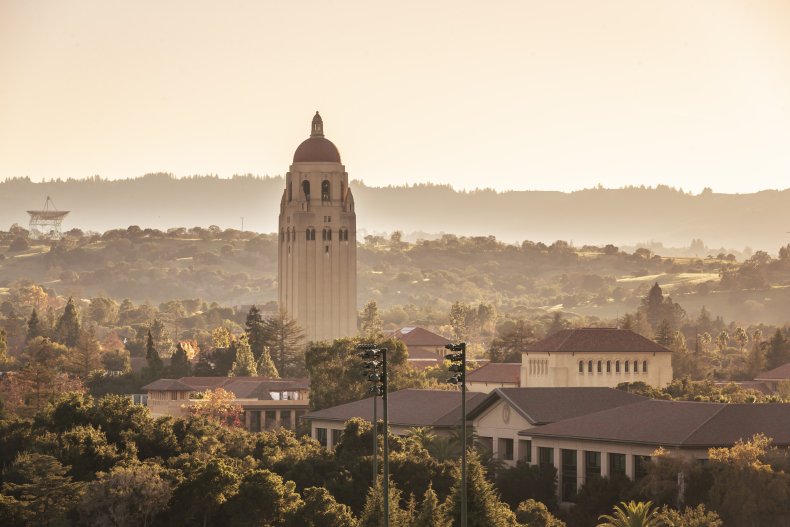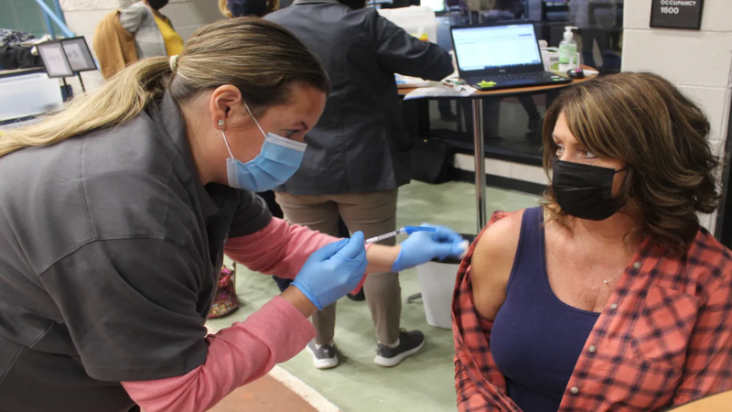
Chief Medical Officer describes potential for ‘substantial’ impact on children’s health, with mental welfare and cancer rates also affected
The best universities in the world are supposed to be bastions of scientific reasoning. Instead, during the pandemic, they instituted policies that are at odds with basic principles of public health. This includes, unfortunately, Stanford University, where I am an international graduate student in the PhD program in Physics.
This spring, Stanford instituted a requirement that all students be vaccinated or else face an “enrollment hold” which restricts their ability to complete classes, progress on degrees, get financial aid or even live on campus. Though the university was not explicit, these restrictions on the unboosted amount to effective expulsion from the university.
COVID is a disease that discriminates by age. Nearly 80 percent of COVID-19 related deaths in the U.S. have occurred among people 65 or older, and young people like me are relatively spared from the risk of hospitalization and death if infected. While bad outcomes can still happen, the odds are in line with other risks in my own life that I happily take.
Because of this discrepancy, COVID vaccines are most important for the older population. The vaccines are very effective in reducing the risk of severe disease and death upon COVID infection, with the greatest absolute risk reduction for the older population. By the same token, the vaccine is much less beneficial for young people like me.
While the vaccine is safe for use with a relatively low risk of side effects, there is an established risk of myocarditis for younger people—especially young men like me. The medical literature suggests that somewhere between 1 in 6,000 and 1 in 10,000 young vaccinated adolescent boys and young men develop the heart condition as a consequence. Many who develop the condition end up in the hospital and face a lengthy convalescence. Some die. The risk of this condition increases with the number of vaccine doses a person has received, with the greatest risk coming from the booster shot.

Furthermore, the protection provided by the vaccine and the booster against COVID infection is short-lived and limited. Many vaccinated people get COVID and transmit it to others, especially now that Omicron is the dominant variant. So the usual public benefit of vaccination—the protection of others against disease transmission—is less relevant with this vaccine than it is with traditional childhood vaccines.
Based on these medical facts, I decided to get two doses of the vaccine last year. Despite being vaccinated, I nevertheless contracted and recovered from a mild case of COVID this past January. The epidemiological evidence is overwhelming that vaccinated and COVID-recovered people like me have stronger immunity against reinfection and disease transmission than even vaccinated and boosted people who have never had COVID. I have determined that I do not need a booster and would only receive one as a result of Stanford’s coercive mandate.
I am an international student in the Physics PhD program. I have a wife and a one-year-old son, who are dependents. If I do not get the booster shot before April 15, I cannot enroll for the spring quarter and my J-1 visa will be automatically canceled, as will the J-2 visas of my wife and child. I want to finish my program, but also do not want to be bullied into taking a booster shot. For international students like me, the consequence of not being injected with the booster is deportation.
Several aspects of the Stanford booster mandate render it particularly irrational. The university requires students to be boosted—even those whose classes are all online and who live off-campus—but not staff or professors, who are older and arguably more at risk. Stanford permits exemptions from the requirement for medical and religious reasons (though it rarely grants the former) but not philosophical reasons. And although it is forcing students to take the booster, Stanford is unwilling to take liability or pay for the consequences of any serious side effects that might occur.
In January, Stanford students delivered a petition to the administration in opposition to the booster mandate. Though the petition gathered more than 2,500 signatures and provided scientific evidence for the irrationality of the booster mandate, the University ignored it and has not responded to any of its scientific arguments. When I contacted Stanford authorities, they rebuffed me, saying their mandate should not be considered coercive. It is painful to realize that my school is twisting my arm with the threat of visa cancellation while claiming that I am not forced to do anything. Many students will comply unwillingly with the mandate because they do not want to disrupt their future careers.
For me and other international students, the consequences of not being injected with the booster are even higher. We, along with our families, face deportation—and Stanford knows it. It is time everybody knows it as well.



